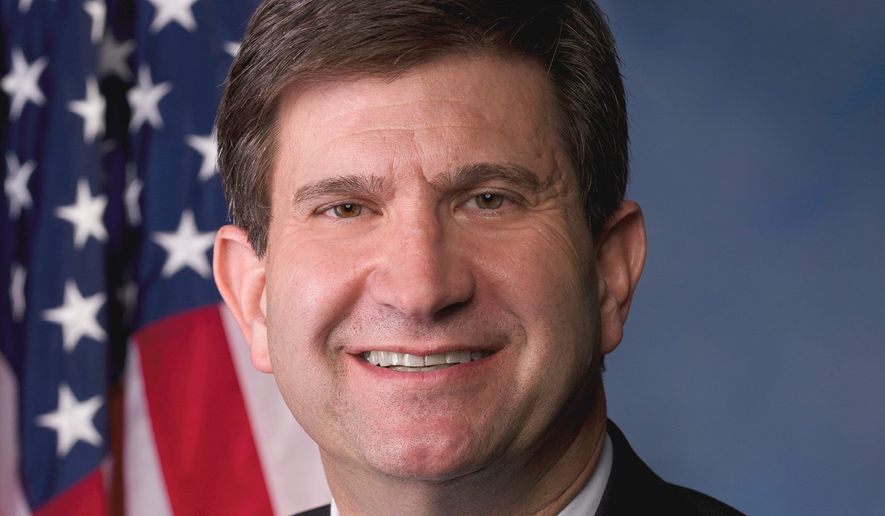OPINION:
Rep. Brad Schneider, Illinois Democrat, and Rep. David McKinley, West Virginia Republican, sponsored H.R. 315 to delay a two percent cut to Medicare — a byproduct of the debt-tackling “sequester” from 2011 — until the end of the COVID-19 pandemic.
The House recently moved to stave off deep cuts, including to Medicare, through the end of the calendar year but the Senate must approve the reprieve and Congressmen say hospitals and doctors need long-time assurance.
Read on for more of our conversation with Rep. Schneider about the ongoing pandemic, bipartisanship, and health providers who face unprecedented challenges:
TWT: I understand H.R. 315 would delay the Medicare sequester cuts through the pandemic. Can you explain to our readers how this Medicare sequester works and what your bill would do about it?
Schneider: The Medicare sequester is a two percent across-the-board cut. Our bill would delay that cut for the duration of the pandemic.
We’re seeing unprecedented demand put on our health care system, unprecedented needs for health care. I think across-the-board cuts are the wrong way to approach things in the first place, but to do it in the midst of the pandemic is the worst possible time and adding insult to injury.
TWT: How did this come to your attention and how’d you link up with Rep. David McKinley of West Virginia?
Schneider: I’m on the Ways and Means Health Subcommittee. We’re obviously looking at where there are stresses on the system. You go back to last year, we were talking about how our health care workers are our heroes, we’re seeing on the news every night the challenges.
[We asked] where are the challenges, what things need to be fixed? This is one of the things we identified, and one that was a pretty straightforward resolution, H.R. 315, which says don’t do this [Medicare cut] during a pandemic.
I believe in bipartisanship, I’m committed to it. I work on trying to have good relationships across the aisle — different people, to work with them on different things. So we reached out, and we’re working on this together.
TWT: Who is pushing for this back home? Are hospitals and doctors dialing up the pressure?
Schneider: There’s a lot of folks who are concerned about this.
I stay in very close contact with the hospitals in my district in general but especially during the pandemic. Obviously, over the course of any given year, I’m talking to different groups of doctors who come and visit the office sharing their perspectives and concerns. They’ve all expressed concerns about this. Once again, we are in unprecedented times for our health care system in this country, both as patients and as providers.
TWT: What’s the fear here? Are you worried Congress will cut payments because it sees the pandemic situation getting slightly better?
Schneider: Our responsibility [as Members of Congress] covers a whole spectrum of issues, from health care to the economy to infrastructure to immigration, just on any given week in the House.
And you don’t want to miss things, and things can slip through the cracks or you can have unintended consequences. I don’t think anyone wants to see an across-the-board cut to Medicare, which is why we have such broad bipartisan support on this effort.
TWT: Who might be affected, besides health providers? Seniors?
Schneider: It’s good for Medicare beneficiaries. My mom’s 82, my dad’s 87. I don’t think they’ll care that I told you their ages, but they’re both on Medicare.
They’ve had their health care needs throughout this. My mom’s a breast cancer survivor; they need access to their doctors, they need their doctors to provide them care both routinely and, God forbid, if there were to be an urgent need.
To be putting pressures on our health care system, already because of the pandemic, and adding an across-the-board cut would put their care at risk and every senior’s care at risk in the country.
TWT: What will this cost? Taxpayers are paying for trillions in coronavirus relief, and the sequester was designed to rein in the debt.
Schneider: I don’t have a number off the top of my head. Remember, that Medicare is not a drain on the general budget. People are paying into Medicare each year, we need to obviously make sure that Medicare is there not just for this generation but for future generations.
TWT: What are your chances of success?
Schneider: We were able to get a temporary delay [in the Medicare cut] in the relief bill that passed in December, and then [Friday] Congress passed a delay to the end of this calendar year. So we’ve hit a pause button, if you will.
I pray to God that by the end of this year we’re looking at the crisis of COVID in the rearview mirror.
My hope is that, as President Biden touched on, we’ll be having backyard gatherings with family and friends on July 4th, that’s all good news. And yet we’re still seeing new strains of this virus spikes in various places and a number of infections. This is far from over.
My hopeful answer is that delaying this through the calendar year gets us past the pandemic, and then my cautious answer is only time will tell. Assuming that this [House measure] moves forward, we’ve addressed the problem for this year. Then we have to look beyond that.




Please read our comment policy before commenting.